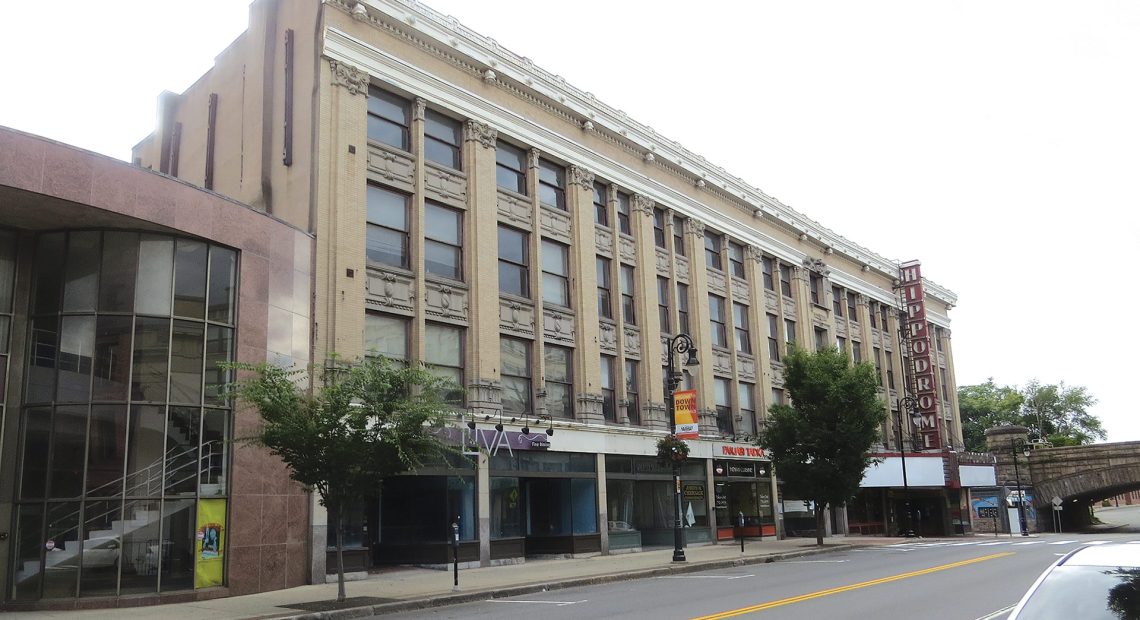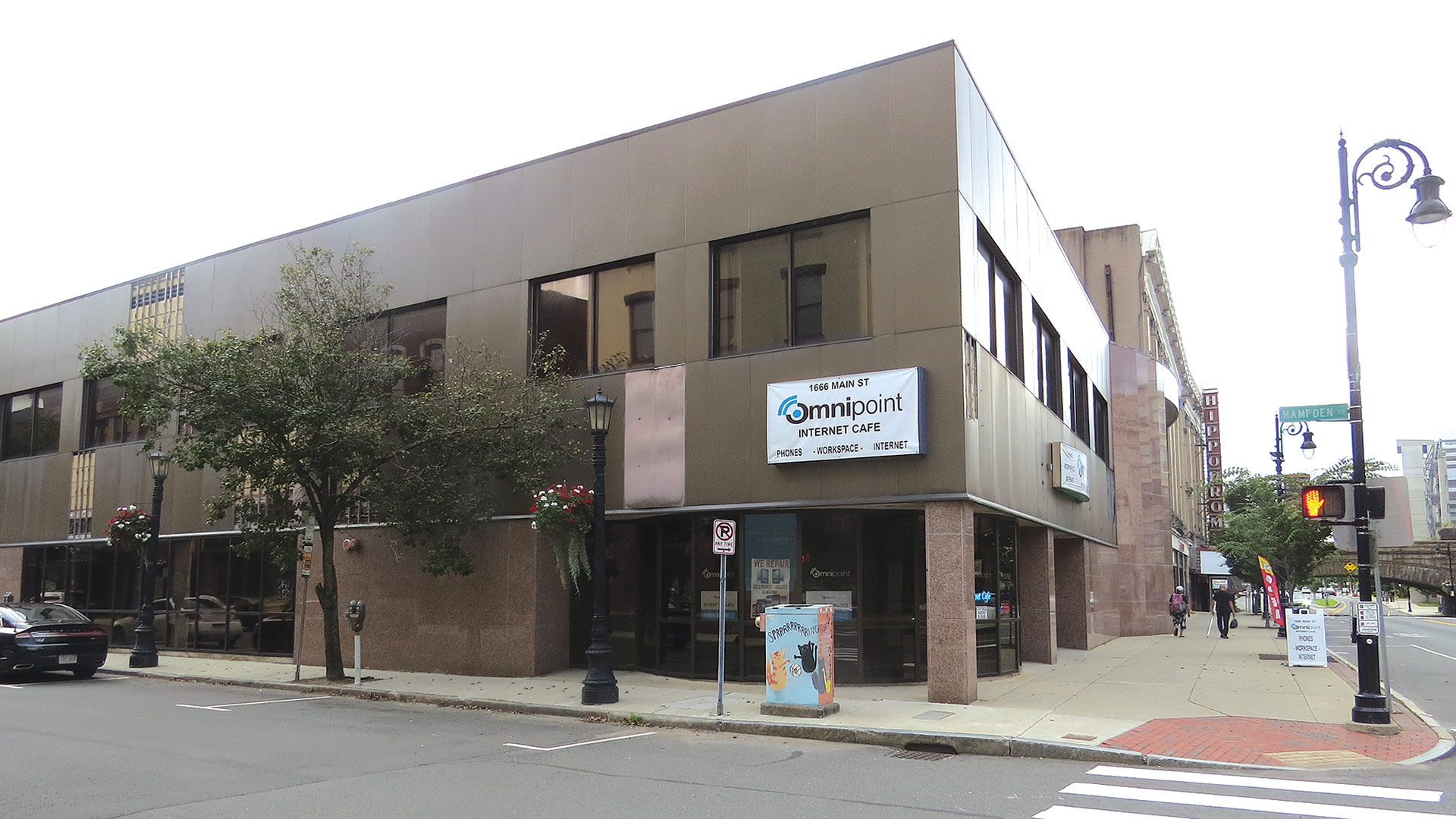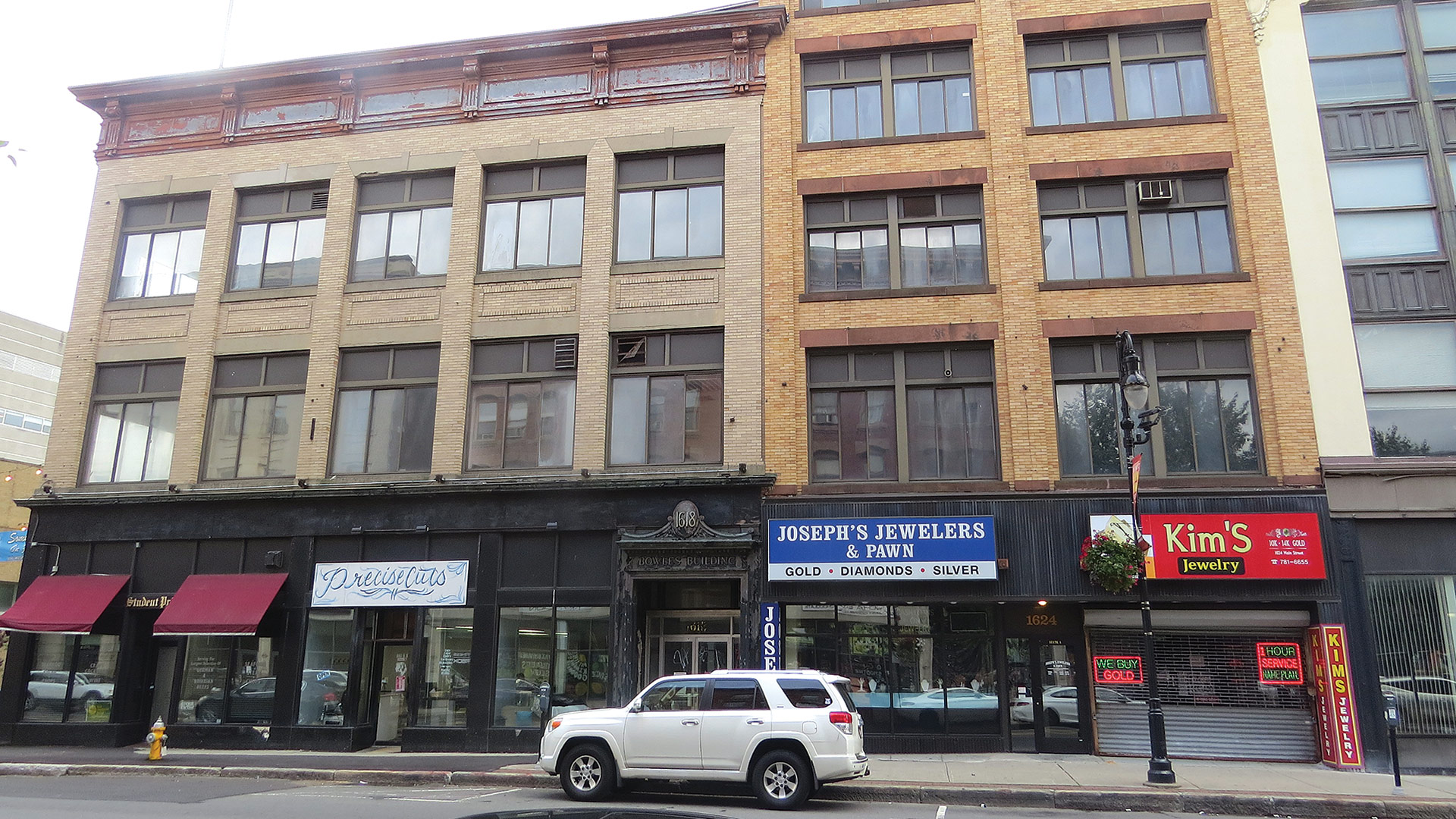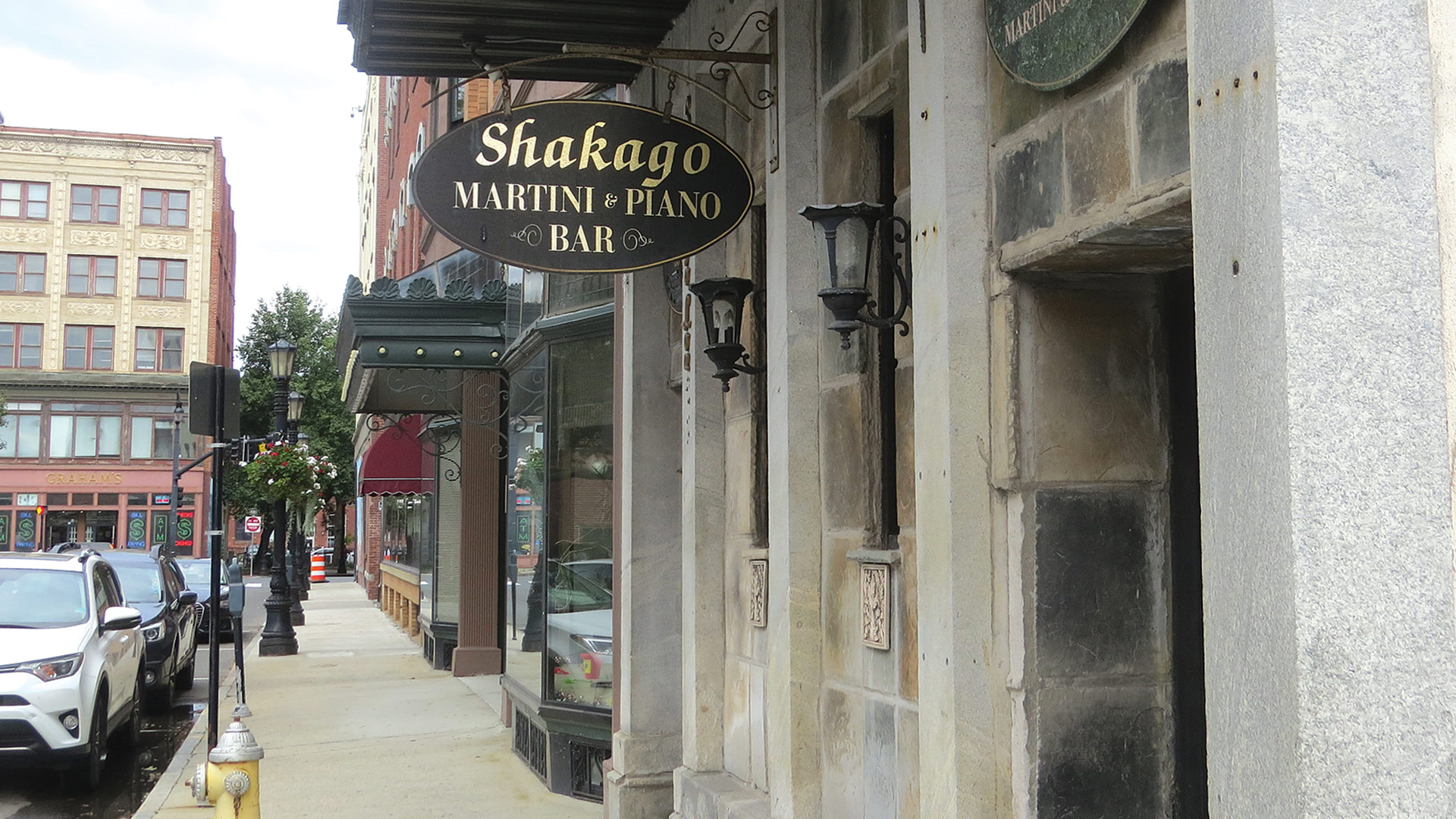
New England Farm Workers’ Council Transitioning Out of Real Estate
Divesting the Portfolio

The Paramount Theater/Massasoit Hotel complex is one of several properties in the New England Farm Workers’ Council portfolio now under agreement.
Dan Knapik says that, when he became executive director of the New England Farm Workers’ Council in the summer of 2021, he found a multi-faceted nonprofit agency at what amounts to a crossroads and in need of what he called a “kick start.”
That was especially true when it came to the agency’s broad commercial real-estate portfolio, assembled over the preceding decades with the goals of housing programs, spurring economic development, and creating revenue streams — goals that, in most cases, have not been realized.
“We needed to go aggressively to rent out what we could or sell it,” said Knapik, adding that, in most all cases, the latter option is being pursued. “We put a multi-pronged strategy together; we started renting what we could rent and sell what we couldn’t rent.”
Indeed, a few of the agency’s holdings were sold prior to his arrival, in the winter and spring of 2021, including 1600 Main St. in Springfield (the International Bier Garten), sold for $700,000; and 297-299-301 Main St. in Holyoke, sold for $150,000.
The selloff has continued into this year, with 276 Union Ave. in Bridgeport, Conn. (a rooming house) selling for $656,000 in January. Then, in May and June, the property at 21-23 Hampden St., home to the Shakago Martini and Piano Bar, sold to an Alabama-based real-estate company for $240,000; 2345 Main St. in Springfield sold for $85,000; 203-205 High St. in Holyoke sold for $134,900; 211-213 High St. went for $134,000; and 211-213 High St. sold for $49,900.
“We needed to go aggressively to rent out what we could or sell it. We put a multi-pronged strategy together; we started renting what we could rent and sell what we couldn’t rent.”
There are several other properties now under agreement, Knapik said, including the 1610 Main St./20 Fort St. complex, home to the Student Prince restaurant, and the Paramount Theater/Massasoit Hotel complex further north on Main Street, a historic property that has long been considered a key to revitalization of the downtown. And the agency is actively showing other properties, including 32-34 Hampden St. in Springfield and 217-225 High St. in Holyoke.
“I am determined to divest the portfolio,” Knapik said, adding that doing so gives the agency, an affiliate of Partners for Community, capital to pay down debt, while also freeing it from some heavy tax burdens — nearly $70,000 each quarter for the properties in Springfield alone — and debt service, an estimated $200,000 per quarter. And it will provide the agency the time and opportunity to focus on its mission.
Overall, this is not a particularly good time to be selling real estate, said Knapik, adding that higher interest rates — and they keep getting higher to due to actions by the Federal Reserve to cool the economy and tame inflation — have made this assignment more challenging.

The nonprofit’s board voted last fall to sell the remaining 13 properties in the portfolio, including 1666-1670 Main St. in Springfield.
“It’s been difficult — the Fed’s interest-rate environment has been less than favorable for us, and some of the buildings were not in great shape,” he told BusinessWest, noting that interest rates are more than five points higher than they were just a year or so ago.
But given these market conditions — and the state of the some of the properties — he is not unhappy with the results to date.
“I haven’t been horribly displeased,” he went on. “We’re obviously not selling class-A real estate, but we haven’t lost money on the sales, either.”
For this issue and its focus on commercial real estate, BusinessWest takes an in-depth look at the council’s active efforts to shift away from the commercial real-estate business, what this means for the agency, and what it might mean for area communities, especially Springfield and its downtown.
Setting Sale
When BusinessWest toured what is known colloquially as the ‘Fort building’ or ‘Fort complex’ not long after it was purchased by the Farm Workers’ Council in 2010, then-President and CEO Heriberto Flores (he still holds those titles at the agency) talked enthusiastically about bringing new life to the vast spaces in the multi-story complex that had been vacant for years, and, in many cases, decades, with some of the abandoned offices still featuring brightly colored shag carpeting.

The Fort complex is one of several properties in the New England Farm Workers’ Council portfolio now under agreement.
Today, they are still vacant — the Student Prince and the Latino Economic Development Corp. (an affiliate of the council) occupy the ground floor, and they are the only tenants in the complex — and those quiet spaces speak volumes about why the Farm Workers’ Council is divesting itself of its real-estate portfolio, Knapik said, adding that, in many respects, the properties have been underperforming and losing money for several years.
Recapping the history and state of this portfolio, Knapik said the properties were acquired with good intentions and solid goals in mind, but most of the promise has not been realized.
“They weren’t really aggressive about seeking out new tenants, and there was a lot of deferred maintenance on the buildings,” he explained. “A lot of the buildings were bought years ago to put programming in, and one of the mistakes I think the council made was, when programming lost funding, for whatever reason, buildings should have been sold off, and they weren’t. They were held onto for a variety of reasons, and they then became big liabilities, and this is where a lot of the accumulated debt came from.”
“A lot of the buildings were bought years ago to put programming in, and one of the mistakes I think the council made was, when programming lost funding, for whatever reason, buildings should have been sold off, and they weren’t.”
This fact was certainly not lost on the nonprofit’s board, which voted last fall to sell the remaining 13 properties in the portfolio, he said, adding that many have been, and most of the rest are under agreement.
That list includes several properties in downtown Springfield, including 1666-1670 Main St., 1655 Main St. (the Board of Trade Block), 1628-1640 Main St., and 1618-1624 Main St.
As noted earlier, that includes the Fort complex, which is under agreement to a group led by Peter Pan Bus Chairman and CEO Peter Picknelly, one of group of local entrepreneurs who stepped in to rescue the Student Prince several years ago when closure seemed imminent.
It also includes the Paramount and adjoining Massasoit Hotel, a complex that has been envisioned as a multi-use property, with the theater being a host for events and the hotel being converted for housing.
“We have a purchase-and-sale with a development group that goes back pre-COVID,” Knapik explained. “We continue to work with that development group for a project; we continue to talk with them, and I’m hoping that, within the next 60 days, we can execute a final agreement.”

The property at 21-23 Hampden St., home to the Shakago Martini & Piano Bar, is one of several already sold by the New England Farm Workers’ Council.
Staff Photo
He noted that the same rising interest rates that are making sales of these properties more challenging is driving up the cost of redevelopment of the Paramount/Massasoit Hotel complex.
Overall, the sale of the properties in the portfolio should provide the council with some needed capital, Knapik noted, adding quickly that there is substantial debt to pay down.
“There’s about $4 million in total equity after all the mortgages are paid, but there are some legacy debts, some operating debts that Farm Workers’ has accumulated over the years, and we’re hoping to clear that off,” he said, adding that many of the properties do not have mortgages.
Bottom Line
Meanwhile, by getting out of the commercial real-estate business, the council can concentrate its full energies on its programs, and there are many working in several different realms, from economic development to housing to youth and education.
And it can develop and execute the next strategic plan.
“This will allow the council to take a breath and figure out to position itself for what it wants to do in the future,” he said. “We’ve been in business for 52 years, responding to the needs of the community. When this gets done, we’ll propose some ideas to the board of directors and let them decide how they want to go forward.”




